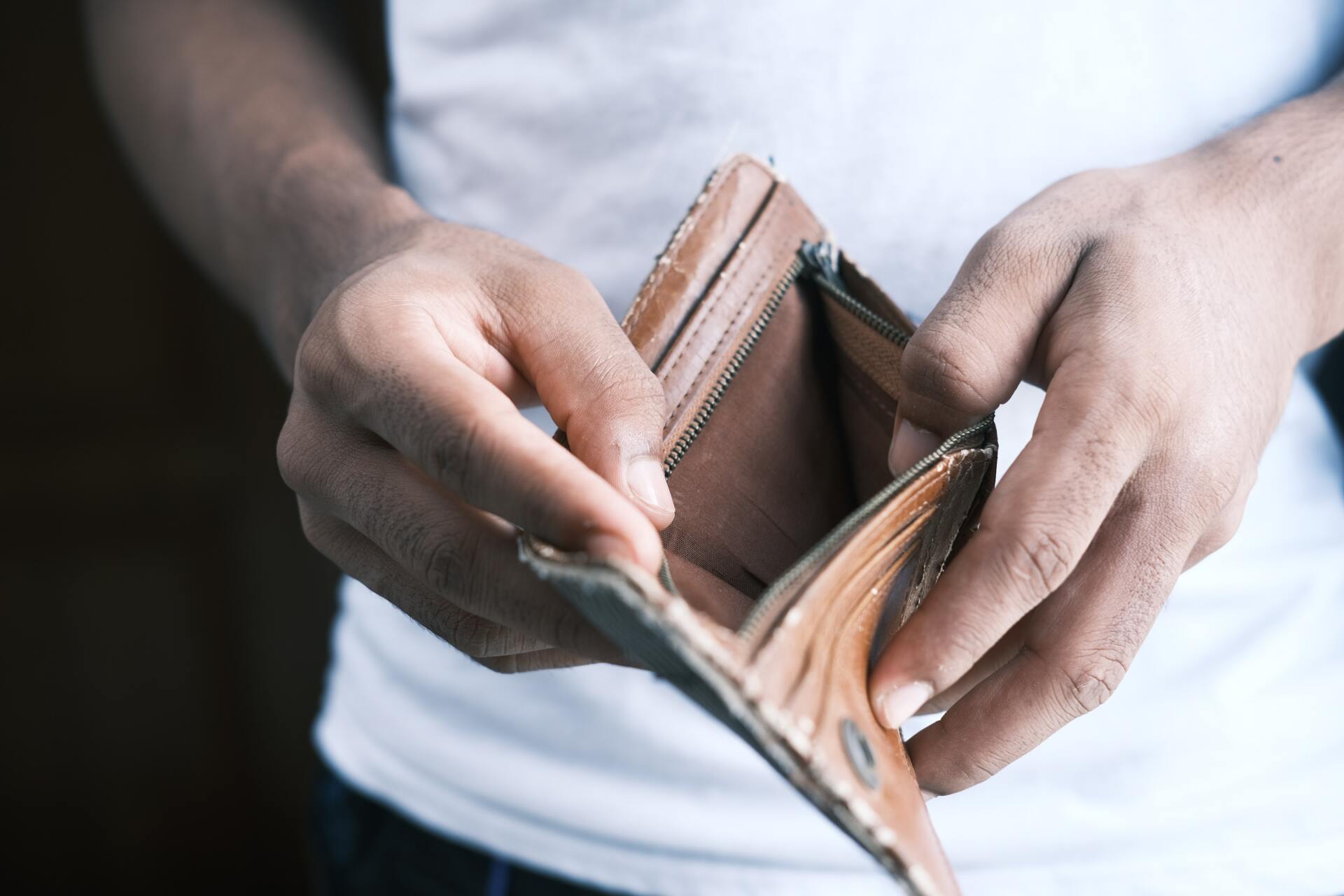8 Ways to Rebuild Your Credit After Bankruptcy
8 Tips to Rebuild Your Credit After Bankruptcy

Bankruptcy can be a challenging and emotional experience, and it's important to remember that it's not the end of your financial journey but really just the first step in rebuilding your credit with your fresh start. With patience, dedication, hard work and smart financial choices, you can work towards a brighter financial future. In this blog post, we will explore eight effective ways to rebuild your credit after bankruptcy.
The Importance of Rebuilding Your Credit After Bankruptcy
For most of our clients, the main goal in rebuilding is to be able to purchase a home.
The Federal Housing Administration (FHA) has waiting periods for borrowers who have filed for bankruptcy before they can qualify for an FHA-backed mortgage. The waiting periods can vary depending on the type of bankruptcy but definitely all of them require that you take active steps after your bankruptcy to rebuild your credit.
Reaching your major life goal of buying a home requires being able to get a mortgage. Rebuilding credit plays a pivotal role in qualifying for a mortgage loan, especially on favorable terms.
You typically need to wait at least two years after the discharge date of a Chapter 7 bankruptcy before they can qualify for an FHA loan.
You may be eligible for an FHA loan during a Chapter 13 bankruptcy proceeding if you have been making consistent and on-time plan payments for at least one year, but this is fairly unusual. If the Chapter 13 bankruptcy has been discharged, the waiting period is typically two years from the discharge date.
It's important to note that these waiting periods are subject to change, and lending guidelines can evolve over time. Borrowers should consult with FHA-approved lenders or mortgage professionals to get the most up-to-date information and guidance on FHA loan eligibility after bankruptcy.
If you are a qualified veteran, then the VA has short waiting periods and will lend while you are in bankruptcy.
Furthermore, rebuilding credit can impact everyday financial matters like getting a car loan with favorable terms or obtaining credit cards, which can provide a safety net for emergencies and help build a positive credit history when used responsibly. It also influences insurance premiums, as insurers often consider credit scores when determining rates.
For aspiring entrepreneurs, rebuilding credit is equally vital when starting a business. Many entrepreneurs need startup capital to cover initial expenses such as equipment, inventory, and marketing. Accessing business loans or lines of credit is often essential, and lenders scrutinize personal credit scores when evaluating business loan applications. A strong credit history demonstrates fiscal responsibility, enhancing an entrepreneur's chances of securing financing to launch or expand their venture.
In conclusion, rebuilding credit is a vital undertaking as it directly influences an individual's ability to access loans, rent or purchase homes, buy or lease cars or get capital to start businesses. A positive credit history opens doors to financial opportunities with lower interest rates, larger loan amounts, and better terms. By actively working to rebuild their credit, individuals can not only achieve their personal and entrepreneurial goals but also pave the way for a more stable and prosperous financial future.
How Good Credit Influences Financial Health
There are many benefits to having a good credit score. A solid credit history is essential for obtaining loans. Whether it's a personal loan for unexpected expenses, an auto loan for a reliable vehicle, a home mortgage or a student loan for education, lenders heavily rely on credit scores to assess the risk associated with lending money. A higher credit score typically results in lower interest rates, saving you significant amounts of money over the life of the loan. Conversely, if you have poor or no credit history at all, you will probably face higher interest rates and may even be denied loans altogether.
But rebuilding credit isn't just about accessing loans; it's about enhancing overall financial security. Good credit gives you the flexibility to navigate life's financial challenges and seize opportunities as they arise.
A good credit score is essential to your overall financial stability and future opportunities.
Strategy 1: Create a Budget so You Can Always Pay Your Bills On Time

The first step in rebuilding your credit after bankruptcy is to establish a reasonable but well-structured budget. This means a budget that is realistic and covers all of your expenses. This will help you gain control over your finances and ensure that you're living within your means. List your monthly income and expenses, and be diligent about tracking every dollar you spend. A budget will prevent overspending and help you allocate funds to repay debts and rebuild your credit.
Having a budget will also help you always pay your bills on time. One of the most crucial factors affecting your credit score is your payment history. Make it a priority to pay all your bills on time, including credit cards, loans, and utilities. Set up reminders or automatic payments to avoid missing due dates, as even a single late payment can negatively impact your credit score.
It is important that your budget includes building a reserve for emergencies. It shouldn’t have you spending everything that you make each month. After a bankruptcy, you won’t have credit cards to cover things like unexpected repair bills.
It is also very important that your budget include health insurance if you aren’t covered through a plan at work or otherwise. Without health insurance, you are always at risk for the uninsured medical expenses that can destroy your budget and your chances to rebuild your credit.
How Late Payments Affect Your Credit Score
Late payments can significantly harm your credit score. They indicate financial irresponsibility and can result in a lower credit score, making it harder to qualify for loans or credit cards and potentially leading to higher interest rates. Consistent on-time payments are crucial for maintaining a healthy credit score.
Strategy 2: Regularly Review Your Credit Report
We recommend that you regularly request free copies of your credit reports from the major credit bureaus (Equifax, Experian, and TransUnion) on www.annualcreditreport.com and review them for errors or inaccuracies. You can get one of each of your reports each year so we recommend getting one of them every four months. For example, every year you could get Equifax in January, Experian in May and Transunion in September. Dispute any discrepancies you find, as correcting errors can have a positive impact on your credit score.
Strategy 3: Get a Secured Credit Card

Secured credit cards are an excellent tool for rebuilding credit. They require a cash deposit as collateral, which acts as your credit limit. Use the card responsibly, making small purchases and paying the balance in full each month. This demonstrates your ability to handle credit responsibly and gradually improves your credit score. Keeping the balances low is as important as on time payments.
Strategy 4: Apply for a Credit-Builder Loan
Credit-builder loans are a financial tool designed to help individuals with limited or poor credit history improve their credit scores. They are very similar to secured credit cards.
To apply for one, look for a bank or credit union offering these loans, including online banks. Typically, you deposit a specific amount, which becomes your available line of credit that you can “borrow” against. Typically, there are monthly payments that are reported to credit bureaus and held in an account until the loan term ends. At the end of the loan, you still have the deposit that you made to get the “loan.”
Timely payments demonstrate responsible credit use, gradually boosting your credit score. Once the loan term concludes, you receive the deposited amount, usually with interest. Credit-builder loans are a structured way to establish or repair credit, leading to better financial opportunities.
Strategy 5: Consider Getting a Co-Signer

Using a co-signer can be a strategic move to improve your credit score, but it comes with significant risks for the individual who agrees to co-sign a loan. For this reason, this strategy should be used very, very carefully or maybe not at all. It is probably a last resort kind of approach, but only when you are completely certain that you can make the payments on the co-signed loan.
On the other side of the equation, basically no one should ever consider co-signing for any loan that they could not easily repay themselves if the primary borrower cannot.
When you have a limited credit history or a low credit score, lenders may be hesitant to approve your loan application. In such cases, having a co-signer with a strong credit history can enhance your chances of securing the loan. The co-signer essentially vouches for your ability to repay the loan, making the lender more comfortable with the arrangement.
As you make timely payments on the co-signed loan, it can positively impact your credit score. These on-time payments contribute to a more positive credit history and demonstrate your creditworthiness to future creditors. Over time, your improved credit score can make it easier for you to qualify for loans or credit cards on your own without the need for a co-signer.
Who Can Be a Co-Signer and What Does it Mean for Them
While anyone can be a co-signer, it is usually someone with a family or other personal relationship to the primary borrower. This means that co-signing can strain relationships, especially if the primary borrower encounters financial difficulties or fails to meet their obligations. It can lead to tension and conflicts between family members or friends.
Basically, no one should ever consider co-signing for any loan that they could not easily repay themselves if the primary borrower cannot as the co-signer is subject to significant risks such as:
Legal Obligation: The co-signer is legally responsible for the entire loan amount if the primary borrower fails to make payments. This means the co-signer may have to repay the loan in full, including any interest, late fees, or collection costs if the primary borrower doesn’t or isn’t able to pay the loan.
Credit Impact: If the primary borrower misses payments or defaults on the loan, it negatively affects the co-signer's credit score. This can make it difficult for them to secure credit in the future, as any late or unpaid payments on the co-signed loan appear as negative marks on their credit report.
Limited Financial Flexibility: Co-signing ties up the co-signer's credit capacity by increasing their credit utilization ratio, potentially limiting their ability to obtain loans or credit for their own needs.
In conclusion, using a co-signer can be a valuable tool for improving your credit score and accessing credit when your own credit history is insufficient. However, it should not be taken lightly, as it places significant responsibility on the co-signer and can have lasting financial and personal consequences if not managed responsibly. Both parties should carefully consider the risks and benefits before entering into a co-signing arrangement.
To reiterate, we strongly advise that no one should ever be asked to or consider co-signing for any loan that they could not easily repay themselves if the primary borrower cannot.
Strategy 6: Diversify Your Credit Mix
A diverse credit mix can enhance your credit score. While you may start with secured credit cards, try to diversify your credit portfolio over time. This could include installment loans like a car loan or a personal loan. Be cautious not to take on too much debt at once; only borrow what you can comfortably manage and keep your balances low.
Strategy 7: Keep Your Credit Utilization Low
Credit utilization is a crucial factor in determining your credit score and managing it effectively for rebuilding your credit. To calculate your credit utilization score and keep it low, follow these steps.
How to Calculate Your Credit Utilization Ratio
Credit utilization is the ratio of your outstanding credit balances to your total credit limit. It is expressed as a percentage. For example, if you have a total credit limit of $10,000.00 and owe $2,000.00, your credit utilization rate is 20%. This rate is then used by a lender to consider your debt to income ratio. This means a new creditor will look at your utilization and your income to answer a basic question - does this person have enough income to pay their current credit with income left over to pay on the new credit. The higher your utilization ratio the higher the income you need to stay current on the debt. Even with on time payments, high utilization ratios can be viewed as bad credit when compared to income.
Monitor Your Credit Card Balances
Regularly check your credit card balances and ensure they remain well below your credit limits. Aim to keep your credit utilization rate below 30%, as exceeding this threshold can negatively impact your credit score.
Use Credit Wisely
Be cautious about opening new credit accounts unless necessary. Each new credit inquiry can temporarily impact your credit score. Responsible credit management over time, with a mix of credit types (credit cards, loans, etc.), can improve your credit score. If you are denied credit that will negatively impact your score.
Increase Credit Limits:
Contact your credit card issuers or other lenders to request a credit limit increase. A higher limit can automatically reduce your credit utilization rate, as long as you don't increase your spending.
Pay More Than the Minimum:
Paying only the minimum required amount on your credit card balances will prolong your debt and increase your credit utilization rate. Strive to pay more than the minimum to reduce outstanding balances.
Strategy 8: Practice Patience and Persistence
Rebuilding credit takes time, and patience is crucial. But at the same time, be persistent in your efforts to manage your finances responsibly, make timely payments, and reduce your debt. Over time, your credit score will gradually improve, and you'll regain access to better financial opportunities.
Rebuilding Your Credit After Bankruptcy
Bankruptcy is really just the first step in rebuilding your credit but you must take active steps and work hard after your discharge to repair it. It is essential to be aware of your spending and create a budget that will let you pay your bills on time. You have to monitor your credit and take advantage of any credit opportunities that you can find, like secured credit cards or credit builder loans. Be aware of your credit utilization ratio and take steps to improve it like keeping a low balance on any credit you are able to get and asking for increases in your available credit.
By being both persistent and patient, you can improve your score in two to three years.
At Behrends Carusone we can continue to represent you after your case is over to help you with problems on your credit report, such as discharged debts still showing up, and to give advice on rebuilding your credit.
We know that you don’t really get a fresh start or get back to a normal financial life until you rebuild your credit. We have seen so many of our clients buy homes within a few years after completing their bankruptcy and we want that to be part of your future as well.








Share On: